How to identify the best ERP for your discrete manufacturing business
Discrete manufacturing often is described in ways that are quite simple. Take one of this and two of that, assemble them together, and deliver your product. Even if you have a product that simple, your business supplies many products that flow through the same factory and use the same resources. How you mix them up makes any discrete manufacturer’s business quite complex. Sure you are planning, scheduling and producing and your products must have the quality your customers expect. Your discrete manufacturing ERP system will deliver those requirements - they all do.
Let’s think about what the best ERP looks like to meet your needs today and tomorrow. It will be fully integrated and include a manufacturing execution system that is tightly linked to your supply chain and your labor scheduling system so that work will begin on an order and complete with no interruptions for on-time delivery every time. That MES also links to your accounting and sales systems. What will set it apart is the data it collects along your process and the connections to previously collected data from within your factory. You will use that data to monitor production continuously and share it with customers and others helping them help you deliver satisfaction.
Equipment sensors
Your plant equipment will have sensors that track actual real-time production and report precise data that your ERP can use to update your schedule precisely. No more waiting for a shop worker to stop production, log into a terminal and report what they remember producing. Your ERP will monitor each piece of equipment to discover anomalies before they become critical and use the data to schedule predictive maintenance.
Job traveler sensors
You will employ sensors that travel with your jobs so that you can know in real time which operations are complete and whether the job moved in a timely manner from one work center to the next one in your routing.
Wearable sensors
Your employee’s wearable devices and material handling equipment sensors are connected to your ERP which will help track efficiency and ensure every job that should be in production always has someone working on it at this moment. This human - machine collaboration will improve safety as well as production.
Recommended reading: 7 steps to selecting discrete manufacturing ERP
Smart products
Your products will employ smart components that collect product and usage data. Your revenue streams will move from a product sales model to one that sells outcomes and services related to the performance of your products. Your ERP is at the heart of this model.
Even your building sensors will check on the weather to reduce your energy costs and feed that data to where it needs to go to optimize machines and people.
The benefit that makes it best
What does all this data-driven ERP promise? Flexibility and visibility. Whatever your customer asks for, whatever surprise comes from your supply chain today, your discrete manufacturing ERP will help your business find the optimum path to meet those challenges.
You will attain levels of lean thought almost impossible. You will predict and eliminate downtime. Waste, defects, and surplus inventory can be minimized.
This discrete manufacturing ERP is already available. The sensors that enable IoT in your factory are available. Will your business be among the first to put it all together?
Free white paper
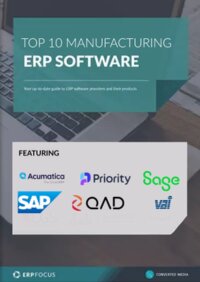
Top 10 Manufacturing ERP Software Comparison
Compare the best manufacturing ERP systems
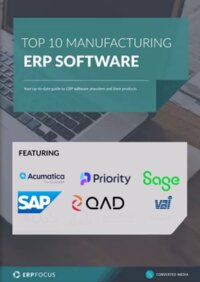
Featured white papers
-
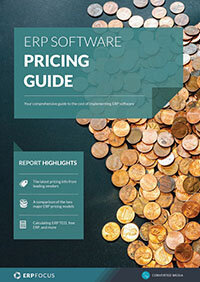
ERP Software Pricing Guide
Get the latest pricing information on over 80 popular ERP systems, and learn how to budget for your ERP project in our free guide
Download -
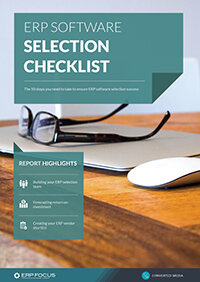
60-Step ERP Selection Checklist
Get the comprehensive checklist for your ERP selection project
Download -
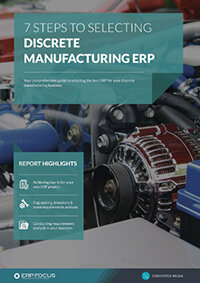
7 steps to selecting discrete manufacturing ERP
17 pages of ERP selection advice and industry requirements analysis
Download
Related articles
-

How to evaluate your ERP RFP responses
The dos and don'ts of evaluating ERP RFPs (including RFP evaluation matrix)
-

Secret KPI: Why Your ERP Implementation Team Matters More Than Software
Learn how Godlan ensures successful ERP implementation for manufacturers with proven strategies &...
-

The best ERP systems for process manufacturing
Consider these ERP systems when selecting your next process manufacturing ERP

